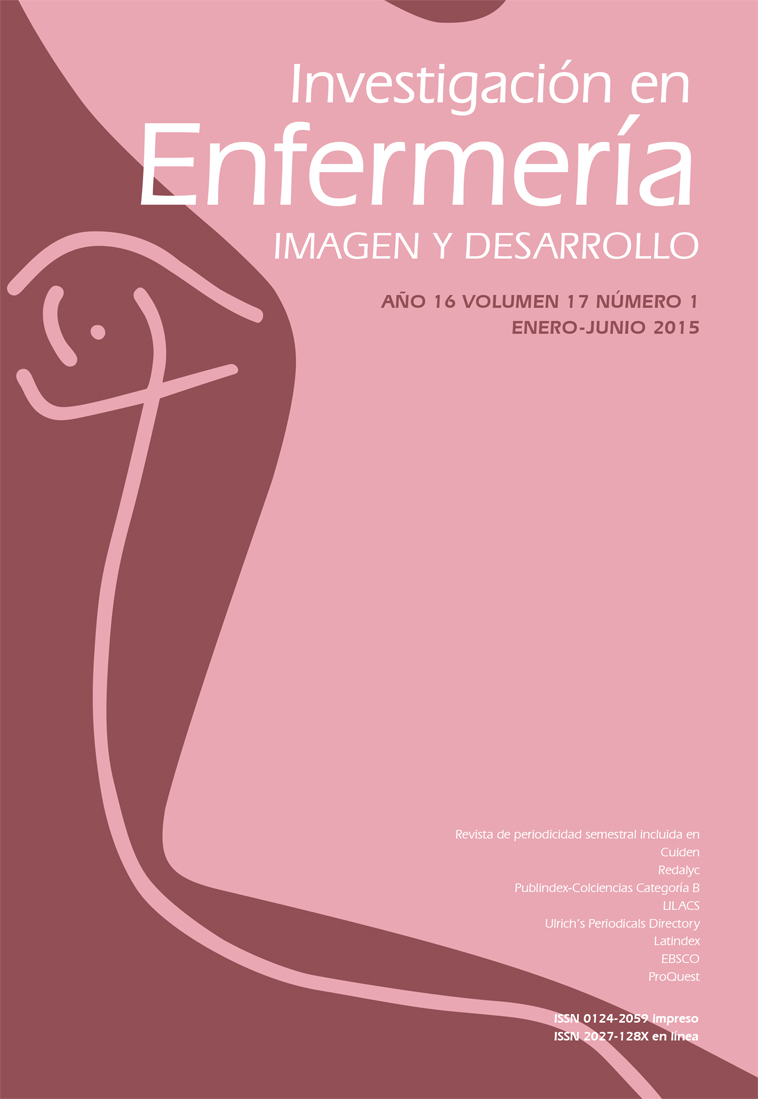Resumen
Introducción: La fatiga es un síntoma frecuente en pacientes con cáncer. Objetivo: Examinarla prevalencia y los predictores independientes de la fatiga en las mujeres concáncer de mama. Material e método: Se trata de un estudio transversal con una muestrano probabilística de 163 pacientes en acompañamiento ambulatorio. La fatiga fueevaluada por la Escala de Fatiga de Piper. Resultados: La fatiga clínicamente relevante(puntuación ≥ 4) estuvo presente en el 31,9 % de la muestra y la intensidad media fue de6 (DP = 1,3). El dolor y la depresión fueron factores independientemente asociados conla fatiga. Conclusiones: La asociación de la fatiga, el dolor y la depresión confirmaronla existencia de clúster de síntomas. El control de la fatiga es poco conocido, pero ladepresión y el dolor pueden ser tratados y tal vez proporcionar alivio de la fatiga.La revista Investigación en Enfermería. Imagen y Desarrollo se encuentra registrada bajo la licencia Creative Commons Reconocimiento 4.0 Internacional. Por lo tanto, esta obra se puede reproducir, distribuir y comunicar públicamente en formato digital, siempre que se reconozca el nombre de los autores y a la Pontificia Universidad Javeriana. Se permite citar, adaptar, transformar, autoarchivar, republicar y crear a partir del material, para cualquier finalidad (incluso comercial), siempre que se reconozca adecuadamente la autoría, se proporcione un enlace a la obra original y se indique si se han realizado cambios. La Pontificia Universidad Javeriana no retiene los derechos sobre las obras publicadas y los contenidos son responsabilidad exclusiva de los autores, quienes conservan sus derechos morales, intelectuales, de privacidad y publicidad.
El aval sobre la intervención de la obra (revisión, corrección de estilo, traducción, diagramación) y su posterior divulgación se otorga mediante una licencia de uso y no a través de una cesión de derechos, lo que representa que la revista y la Pontificia Universidad Javeriana se eximen de cualquier responsabilidad que se pueda derivar de una mala práctica ética por parte de los autores. En consecuencia de la protección brindada por la licencia de uso, la revista no se encuentra en la obligación de publicar retractaciones o modificar la información ya publicada, a no ser que la errata surja del proceso de gestión editorial. La publicación de contenidos en esta revista no representa regalías para los contribuyentes.


